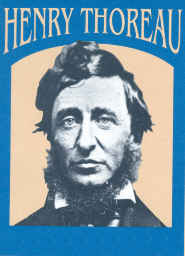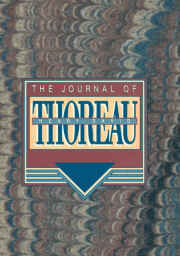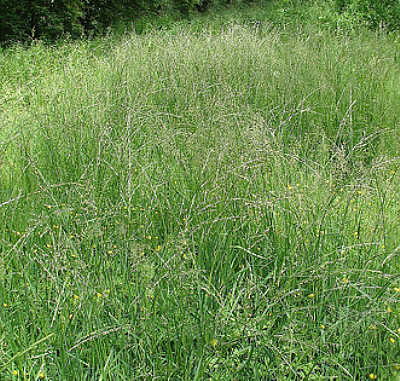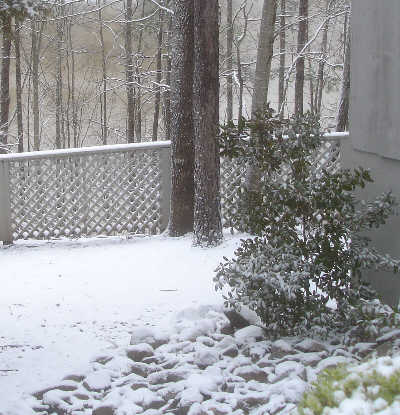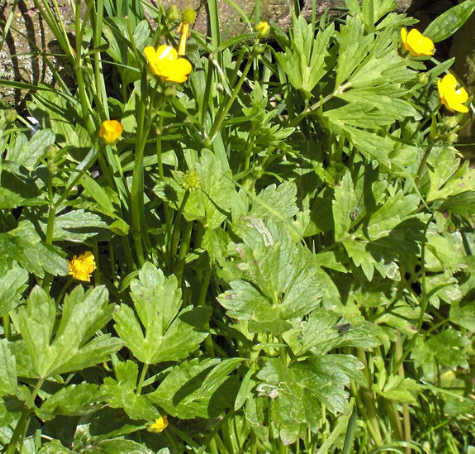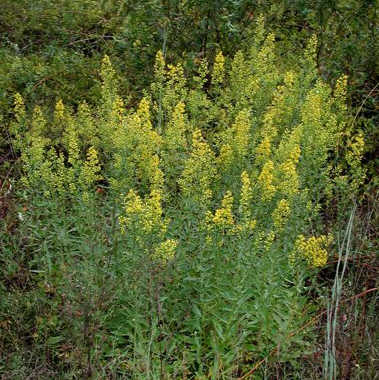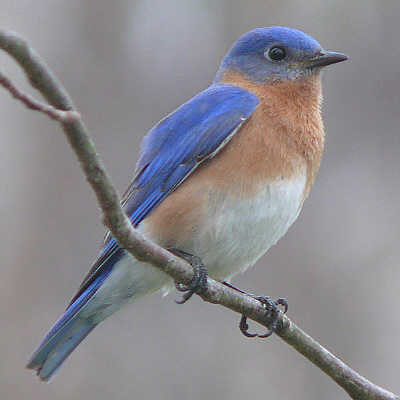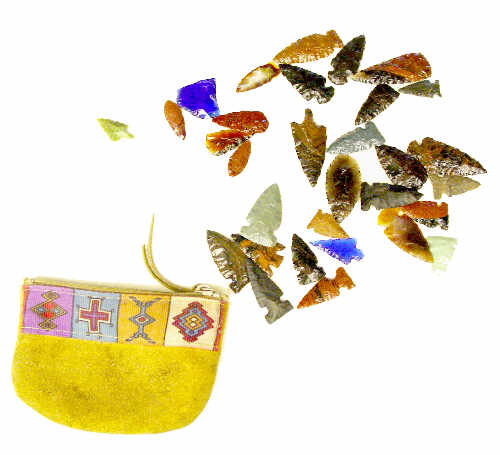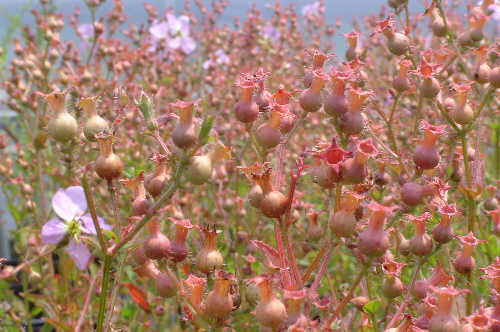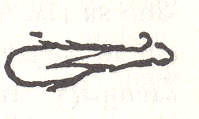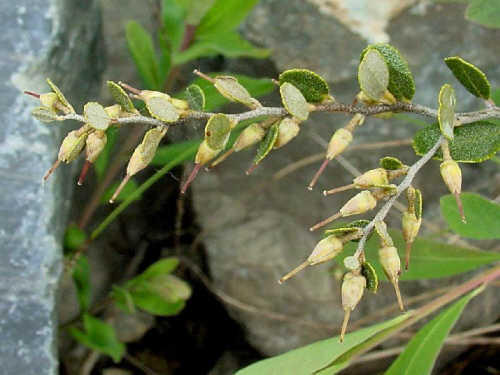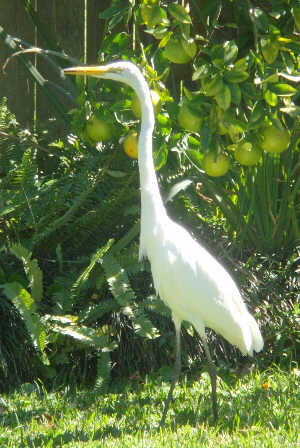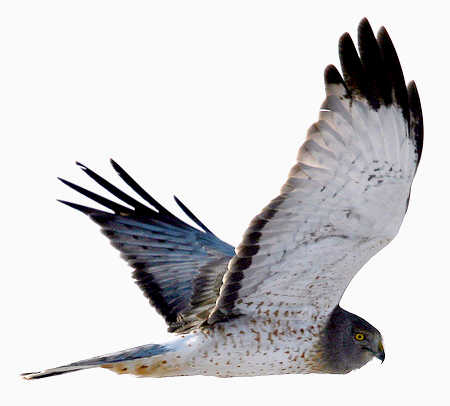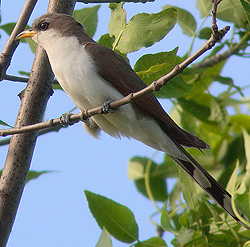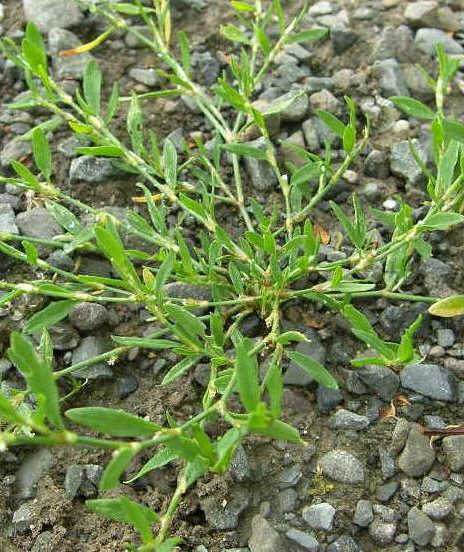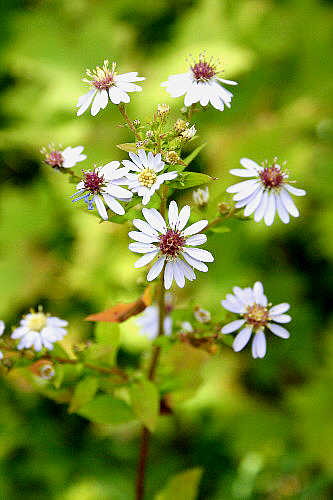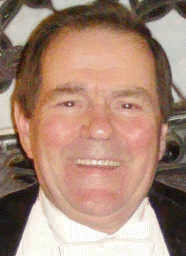[page 91-93 ] March 28. Time will soon destroy the works of famous painters and
sculptors, but the Indian arrowhead will balk his efforts and Eternity will have to come
to his aid. They are not fossil bones, but, as it were, fossil thoughts, forever reminding
me of the mind that shaped them. I would fain know that I am treading in the tracks of
human game, — that I am on the trail of mind, — and these little reminders never fail
to set me right. When I see these signs I know that the subtle spirits that made them
are not far off, into whatever form
transmuted. . . . This arrow-headed
character promises to outlast all
others. The larger pestles and axes
may, perchance, grow scarce and be
broken, but the arrowhead shall,
perhaps, never cease to wing its way
through the ages to eternity. It was
originally winged for but a short
flight, but it still, to my mind's eye,
wings its way through the ages,
bearing a message from the hand
that shot it. . . . They cannot be said
to be lost or found. Surely their use
was not so much to bear its fate to
some bird or quadruped, or man, as
it was to lie here near the surface of
the earth for a perpetual reminder to
the generations that come after. . . .
When you pick up an arrowhead and
put it in your pocket, it may say: "Eh, you think you have got me, do you? But I shall wear a hole in
your pocket at last, or if you put me in your cabinet, you heir or great-grandson will forget me or throw
me out the window directly, or when the house falls I shall drop into the cellar and there I shall be
quite at home again. Ready to be found again, eh? Perhaps some new red man that is to come will fit
me to a shaft and make me do his bidding for a bow-shot. What reck I?"
Later, on May Day, he muses about those who go to Colorado or California, yearning for the riches to be found by panning in gold-laden rivers and streams. Instead he dreams of Concord and its arrowhead-laden fields.
[page 175] May 1. I feel no desire to go to California or Pike's Peak, but I often think
at night with inexpressible satisfaction and yearning of the arrowheadiferous sands of
Concord. I have often spent whole afternoons, especially in the spring, pacing back
forth over a sandy field, looking for these relics of a race. This is the gold which our
sands yield.
There are no plastic flowers in vases or wax fruit in fruit bowls in my home. There is "a wearisome
monotony", as Thoreau would say, about such frozen artifacts which merely sit there and would not change at
all but for the dust they gather upon their surface. But dare to fill vases with fresh flowers and bowls with fresh
fruit and every visitor knows immediately that there is life about the house. Behind the effort of preparing the
fresh flowers and fruit, "the motive is not economy but satisfaction."
[page 96] March 28. When we look at our masterpieces we see only dead paint and its
vehicle, which suggests no liquid life rapidly flowing off from beneath. In the former
case — in Nature — it is constant surprise and novelty. In many arrangements there
is a wearisome monotony. We know too well what we shall have for our Saturday's
dinner, but each day's feast in Nature's year is a surprise to us and adapted to our
appetite and spirits. She has arranged such an order of feasts as never tires. Her
motive is not economy but satisfaction.
One of the bane of modern life has been the increasing prevalence of white bread, made from wheat by
milling away all of the nutrients in the outer shell of the wheat kernel, cut by machines into nice uniform slices with no holes through which jelly or jam can drip in childrenís sandwiches, and produced cheap enough for everyone to afford it. This
so-called boon was decades in the future during Thoreau's time, when only rich people could afford white bread
and the poor had to make do with their brown bread made from whole grain wheat. We see today a surge of
consumer interest again in the brown breads, and now, these are slightly more expensive than the white bread.
The folly of the poor wanting something just because the rich can have it, irrespective of whether it is good for
them, is ever with us.
[page 97] March 28. Brown is the color for me, the color of our coats and our daily lives, the color of the poor man's loaf.
Thoreau loves sailing his small boat, a bark, he calls it, over shallow lakes which he knows will become
fields of flowers when the water has drained to the seas and August comes. What a sea adventure he has,
comparable to Magellan at the Antipodes, only inches above the field of grass to come.
[page 98] March 28. Here, where in August the bittern booms in the grass, and mowers
march en echelon and whet their scythes
and crunch the ripe wool-grass, raised
now a few feet, you scud before the wind
in your tight bark and listen to the sough
of the great waves sporting around you,
while you hold the steering-oar and your
mast bends to the gale and you stow all
your ballast to windward. The crisped
sound of surging waves that rock you,
that ceaseless roll and gambol, and ever
and anon break into your boat.
What will grow when the water has
gone and the bottom of Thoreau's sea is
exposed to the air and sunlight of summer?
[page 98, 99] March 28. Deep lie the seeds of the rhexia now, absorbing wet from the
flood, but in a few months this mile-wide lake will have gone to the other side of the
globe; and the tender rhexia will lift its head on the drifted hummocks in dense patches,
bright and scarlet as a flame, — such succession have we here, — where the wild goose
and countless wild ducks have floated and dived above them. So Nature condenses her
matter. She is a thousand thick. So many crops the same surface bears.
Ducks and geese, Thoreau has sympathy for because they are ever the target of guns lobbing shot
towards them. This next passage gives us an idea of what hunting duck and geese was like before hunting
seasons, duck stamps, and daily limits were imposed on hunters.
[page 99] March 28. Undoubtedly the geese fly more numerously over rivers which,
like ours, flow northeasterly, — are more at home with the water under them. Each flock
runs the gauntlet of a thousand gunners, and when you see them steer off from you and
your boat you may remember how great their experience in such matters may he, how
many such boats and gunners they have seen and avoided between here and Mexico,
and even now, perchance (though you, low plodding, little dream it), they see one or two
more lying in wait ahead. They have an experienced ranger of the air for their guide.
The echo of one gun hardly dies away before they see another pointed at them. How
many bullets or smaller shot have sped in vain toward their ranks! Ducks fly more
irregularly and shorter distances at a time. The geese rest in fair weather by day only
in the midst of our broadest meadow or pond. So they go, anxious and earnest to hide
their nests under the pole.
Often, after I tell someone that I am a writer, their first question is along the lines of, "How much do you
get paid for that?" The singular idea that one might write because one likes to write never crosses their mind —
only money seems to be a proper motivation for writing. Few people who hold that belief will ever become a
writer. Thoreau encountered such thoughts from his fellows as he wandered through the woods and fields taking
the notes which ended up in his journals.
[page 111] April 3. Men's minds run so much on work and money that the mass
instantly associate all literary labor with a pecuniary reward. They are mainly curious
to know how much money the lecturer or author gets for his work. They think that the
naturalist takes so much pains to collect plants or animals because he is paid for it. An
Irishman who saw me in the fields making a minute in my note-book took it for granted
that I was casting up my wages and actually inquired what they came to, as if he had
never dreamed of any other use for writing.
[page 124] April 8. When the question of the
protection of birds comes up, the legislatures regard
only a low use and never a high use; the best-disposed
legislators employ one, perchance, only to examine
their crops and see how many grubs or cherries they
contain, and never to study their dispositions, or the
beauty of their plumage, or listen and report on the
sweetness of their song. The legislature will preserve
a bird professedly not because it is a beautiful
creature, but because it is a good scavenger or the
like. This, at least, is the defense set up. It is as if the
question were whether some celebrated singer of the
human race — some Jenny Lind or another — did
more harm or good, should be destroyed, or not, and
therefore a committee should be appointed, not to
listen to her singing at all, but to examine the contents
of her stomach and see if she devoured anything which
was injurious to the farmers and gardeners, or which they
cannot spare.
In this next passage, Thoreau comes upon a "forest violin" or the origins of violins and violas in antiquity, likely
suggested to an early Orpheus by the sound of two limbs rubbing together in the forest such as Thoreau found.
[page 127, 128] April 9. The wind is as strong, and yet colder, being more from the
north, than before. Through, I think, all this windy weather, or at least for about three
weeks, the wind has regularly gone down with the sun, strong as it has been each day.
As we go up the hill in the woods east of Hubbard's Close, I hear a singular
sound through the roaring of the wind amid the trees, which I think at first
some creature forty rods off, but it proves to be the creaking of one bough on
another. When I knew what it was I was surprised to find it so near, even
within a rod. It was occasioned by two little dead limbs, an inch or less in
diameter, on two different white pines which stood four or five feet apart, —
such limbs as are seen on every white pine below the living ones, some twelve
feet from the ground. These with every motion of the trees in the wind were
grating back and forth on each other, and had worn into one another, and this
produced, not a mere coarse, grating sound, but a perfect viol sound, such as
I never heard from trees before, — a jarring or vibratory creak, as if the bow leaped on the strings,
for one limb was bow and the other string. It was on one key or note when the trees approached, and
quite another and very fine and sharp when they receded. I raised one limb with a pole, and the music
ceased. This was as musical as a viol, a forest-viol, which might have suggested that instrument to
some Orpheus wandering in the wood. He would only have to place a box of resonant wood beneath
to complete a simple viol. We heard several others afterward which made a coarse, squeaking noise like a bird, but this would have suggested music to anyone. It was mythologic, and an Indian might have referred it to a departed spirit. The fiddles made by the trees whose limbs cross one another, — played on by
the wind! When we listened, in the wood, we heard all kinds of creaking and groaning sounds from the
laboring trees.
If one were to generalize from the zany proposition that "enough monkeys typing keys at random on
typewriter keys will eventually write Hamlet" to its musical equivalent, if you get enough of these tree-viols
together, you'll get a Mozart Violin Concerto.
Carpe Diem! cries Robin Williams in a classroom as the English professor in "The Dead Poets' Society"
and soon we can hear that cry reflected off the walls of all other kinds of less literature rooms. Thoreau has his
own style for telling us to Seize the Day!
[page 159] April 24. Nothing must be postponed. Take time by the forelock. Now or
never! You must live in the present, launch yourself on every wave, find your eternity
in each moment. Fools stand on their island opportunities and look toward another land.
Thee is no other land; there is not other life but this, or the like of this. Where the good
husbandman is, there is the good soil. Take any other course, and life will be a
succession of regrets. Let us see vessels sailing prosperously before the wind, and not
simply stranded barks. There is no world for the penitent and regretful.
In another bit of synchronicity, I observed a marsh hawk in flight over my area on the same day I read
in Thoreau's journal about a man shooting a pair of marsh hawks, a hundred and forty-nine years earlier, in a
time when there were no laws against shooting such birds which prey in your chickens. The marsh hawk I saw
was slate gray with fine white markings, a truly elegant bird. I have yet to photograph one as they rarely seem
to land or perch in accessible places near me.
[page 197] June 2. I hear that Farmer shot on the 28th ult. two marsh hawks, male and
female, and got their four eggs, in which the young were moving.
Another bird which I have never seen, to my knowledge, is the cuckoo. Thoreau apparently saw many
of these around Concord and knew of people who collected their eggs.
[page 201] June 13. My rail's egg of June 1st looks like that of the Virginia rail in the
Boston collection. A boy brought me a remarkably large cuckoo's egg on the 11th. Was
it not that of the yellow-billed? The one in the collection looks like it. This one at B. is
not only larger but lighter-colored.
Old Man River he just keeps rolling along, but dammed up rivers and streams around Concord get
Sunday off, a day when the water lies at rest and the level of the river below the dams falls enough to allow small islands of gravel
to rise out from the river beds.
[page 247] July 20. So completely emasculated and demoralized is our river that it is
even made to observe the Christian Sabbath, and Hosmer tells me that at this season
on a Sunday morning (for then the river runs lowest, owing to the factory and mill gates
being shut above) little gravelly islands begin to peep out in the channel below. Not
only the operatives make the Sunday a day of rest, but the river too, to some extent,
so that the very fishes feel the influence (or want of influence) of man's religion. The
very rivers run with fuller streams on Monday morning. All nature begins to work with
new impetuosity on Monday.
Amazing to think that the river gets up on Monday morning as so many job-holders do, and prepares itself for a busy week's run till it next rests on Sunday.
Thoreau later tells us that he could use the level of the river as a clock, with a little bit
of calibration and testing he would be able to tell each day of the week, and the
approximate hour of the day.
[page 287] August 14. By a gauge in the river I can tell about
what time the millers on the stream and its tributaries go to
work in the morning and leave off at night, and also can
distinguish the Sundays, since it is the day on which the river
does not rise, but falls. If I had lost the day of the week, I could
recover it by a careful examination of the river. It lies by in the
various mill-ponds on Sunday and keeps the Sabbath. What its
persuasion is, is another question.
Finally with Thoreau's "door-grass", I look up a Latin name for an unknown plant and find one that we
have in bare spots in our lawn, a weed, if you will. Of course, a weed is best defined as a plant where you don't
want it, and I want it where it resides already.
[page 293] August 26. How singular that the Polygonum
aviculare should grow so commonly and densely about back
doors where the earth is trodden, bordering on paths! Hence
properly called door-grass. I am not aware that it prevails in
any other places.
Frost is most noticeable when it first appears in the Fall because its effects
are so dramatic. Thoreau reckons frost to be a formidable foe, one sneaks over the
fields during the dead of night, leaving behind browned and deadened bodies lying
under its evanescent, hoary shroud by dawn.
[page 295, 296] August 26. That first frost on the 17th was the first stroke of winter
aiming at the scalp of summer. Like a stealthy and insidious aboriginal enemy, it made
its assault just before daylight in some deep and far-away hollow and then silently
withdrew. Few have seen the drooping plants, but the news of this stroke circulates
rapidly through the village. Men communicate it with a tone of warning. The foe is gone
by sunrise, but some fearful neighbors who have visited their potato and cranberry
patches report this stroke. The implacable and irresistible foe to all this tender
greenness is not far off, nor can we be sure, any month in the year, that some scout
from his low camp may not strike down the tenderest of the children of summer. The
earliest and latest frosts are not distinguishable. This foe will go on steadily increasing
in strength and boldness, till his white camps will be pitched over all the fields, and we
shall be compelled to take refuge in our strongholds, with some of summer's withered
spoils stored up in barns, maintaining ourselves and our herds on the seeds and roots
and withered grass which we have embarned. Men in anticipation of this. time have
been busily collecting and curing the green blades all the country over, while they have
still some nutriment in them. Cattle and horses have been dragging homeward their
winter's food.
"Row, row, row your boat/Gently down the stream/ Merrily, merrily, merrily/Life is but a dream" goes
the childhood ditty. Going down the stream a bit or camping down aways on a neighbors lawn adds spice to
the adventure because we are far from the familiar sights and sounds of our own stream or backyard. It is a
dreaming we do when we are awake as well as asleep, as Thoreau points out to us.
[page 296] August 26. All our life, i. e. the living part of it, is a persistent dreaming
awake. The boy does not camp in his father's yard. That would not be adventurous
enough, there are too many sights and sounds to disturb the illusion; so he marches off
twenty or thirty miles and there pitches his tent, where stranger inhabitants are tamely
sleeping in their beds just like his father at home, and camps in their yard, perchance.
But then he dreams uninterruptedly that he is anywhere but where he is.
What is a person like who has a strong "I"? Well, a little bit like Henry David Thoreau in this next
anecdote when he went to buy a pair of shoes. Back then one usually bought their shoes from a shoemaker, that
is, a person who actually makes the shoes on the premises, not just someone who earns a living by repairing
shoes as we know them today, the real shoemaker relegated as it were to the halls of history. I did know a real
shoemaker as a young boy in the 1940s and 1950s. His name was Musso, my Aunt Zelda's father-in-law, and,
in his shop set up at that time in a corner of a shoe store that sold mostly factory-made shoes, he was happily
at work designing and assembling custom shoes for people with odd-shaped feet, usually on just one foot, for
whom no factory shoes would suffice. Thoreau bought his shoes from such a craftsman and could therefore
demand that the tips of his shoes be properly attached, not with wooden pegs nor even zinc pegs, but with iron
pegs which could stand up to the walking and trudging with which he filled his days, over dry ground and marshy
lowlands, at any time of the year. A person with a strong "I" will not let a so-called expert talk him out of what
he has already deemed to be necessary. A customer is often more knowledgeable about how a product is
actually used than the designer and manufacturer, who clothe themselves in omniscience by virtue of their
occupation.
[page 311] Sept. 1. Bought a pair of shoes the other day, and, observing that as usual
they were only wooden-pegged at the toes, I required the seller to put in an extra row
of iron pegs there while I waited for them. So he called to his boy to bring those zinc
pegs, but I insisted on iron pegs and no zinc ones. He gave me considerable advice on
the subject of shoes, but I suggested that even the wearer of shoes, of whom I was one,
had an opportunity to learn some of their qualities. I have learned to respect my own
opinion in this matter. As I do not use blacking and the seller often throws in a box of
blacking when I buy a pair of shoes, they accumulate on my hands.
On September 3, 2008 I was reading the next passage as Hurricane Gustav roared over our home,
knocking down fruit, limbs, and entire trees along its path. Meanwhile, exactly 149 years earlier, Ralph Waldo
Emerson had a large windfall of choice pears on his property.
[page 313] Sept. 3. A strong wind, which blows down much fruit. R. W. E. sits
surrounded by choice windfall pears.
Will Rogers, great American humorist and political commentator said that he never felt safe while
Congress was in session. Thoreau seldom talks politics, but he was unable to restrain himself
when the clerk at the hardware store threw him a straight line.
[page 317] Sept. 8. I went to the store the other day to buy a bolt for our front door,
for, as I told the storekeeper, the Governor was coming here. "Aye," said he, "and the
Legislature too." Then I will take two bolts," said I.
Wit and Thoreau were mostly strangers, if we mean by that only making funny sayings, which he seldom did, to my knowledge. Yet, here is another
example about a woman who swears upon her very life in which Thoreau strikes a witty Wildean note.
[page 329] Sept. 15. When an Irishwoman tells me that she wouldn't tell a lie for her
life (because I appear to doubt her), it seems to me that she has already told a lie. She
holds herself and the truth very cheap to say that so easily.
Ah, Thoreau, there are times he reminds me a bit of Will Rogers, as in this anecdote when he
was asked to help pay for a statue to Horace Mann.
[page 335] Sept. 18. Dr. Bartlett handed me a paper today, desiring me to subscribe
for a statue to Horace Mann. I declined, and said that I thought a man ought not any
more to take up room in the world after he was dead. We shall lose one advantage of
a man's dying if we are to have a statue of him forthwith. This is probably meant to be
an opposition statue to that of Webster. At this rate they will crowd the streets with
them. A man will have to add a clause to his will, "No statue to be made of me." It is
very offensive to my imagination to see the dying stiffen into statues at this rate.
Often I have encountered the aster, but only in crossword puzzles as the fall bloomer or some such hint. In
the next passage we can read that the aster is in fact the latest blooming of all flowers in New England, where
I suspect most crossword puzzles are creating during those long, drear winter months, spent indoors in front of
warm fires.
[page 363] Oct. 2. The Aster undulatus and Solidago cæsia and often puberula are
particularly prominent now, looking late and bright, attracting bees, etc. I see the S.
cæsia so covered with the little fuzzy gnats as to be whitened by them. How bright the
S. puberula in sprout-lands, — its yellow wand, — perhaps in the midst of a clump of
little scarlet or dark-purple black oaks! The A. undulatus looks fairer than ever, now
that flowers are more scarce.
We near the end of our passage with Henry through another year's journal. The only items of note
remaining are a day of gossamer and the chip-monk. Here's his encounter with gossamer, one of many that he reports in his journal. Its origin seems to have remained a mystery to this day.
[page 444] Nov. 15. A fine gossamer is streaming from every fence and tree and stubble, though a careless observer would not notice it. As I look along over the grass toward the sun at Hosmerís field, beyond Lupine Hill, I notice the shimmering effect of the gossamer — which seems to cover it almost like a web, — occasioned by its motion, though the air is so still. This is noticed at least forty rods off.
The Chip Monk is my name for Abel Brooks, known to Thoreau, who lives alone and smiles while he collects wood chips. Thoreau makes a point at several
places in earlier journals about how he himself collects most of his firewood as he floats along the river in his boat,
tossing pieces of floating wood into his boat along the way. Naturally he would appreciate a man who lives alone
and gleans his firewood from chips of wood and enjoys the trails he takes along the way. His chips warm him
during the collection of them and later during the burning of them.
[page 455, 456] Nov. 28. Goodwin is cutting out a few cords of dead wood in the midst
of E. Hubbard's old lot. This has been Hubbard's practice for thirty years or more, and
so, it would seem, they are all dead before he gets to them. Saw Abel
Brooks there with a half-bushel basket on his arm. He was picking
up chips on his and neighboring lots; had got about two quarts of old
and blackened pine chips, and with these was returning home at dusk
more than a mile. Such a petty quantity as you would hardly have
gone to the end of your yard for, and yet he said that he had got
more than two cords of them at home, which he had collected thus
and sometimes with a wheelbarrow. He had thus spent an hour or two
and walked two or three miles in a cool November evening to pick up
two quarts of pine chips scattered through the woods. He evidently
takes real satisfaction in collecting his fuel, perhaps gets more heat
of all kinds out of it than any man in town. He is not reduced to
taking a walk for exercise as some are. It is one thing to own a wood-lot as he does
who perambulates its bounds almost daily, so as to have worn a path about it, and
another to own one as many another does who hardly knows where it is. Evidently the
quantity of chips in his basket is not essential; it is the chippy idea which he pursues.
It is to him an unaccountably pleasing occupation. And no doubt he loves to see his pile
grow at home.
We, you and I, dear Reader, have finished a dozen volumes of Thoreau's Journals spanning the years,
1837 through 1859, the first Journal covering the ten years from 1837 to 1847 and the second picking up again
in 1850. Along the way we walked to the woods and back out again many times together. Often we were
accompanied by Ellery Channing, the ubiquitous C., and other times it was only I or you, the solitary Reader,
to whom Henry confided his discoveries in nature or his innermost thoughts. Henry, we must call him because
by now we have known him longer than most of our long-time friends. Never once has he alienated himself from
us because of some imagined slight, or some favor he asked, but we were unable to oblige, rather, he has
remained a true and steadfast friend, and we dread already the goodbye-saying which faces us a mere two years
hence. Yes, thereafter we may read his words again, but never with the same freshness and surprise of first
discovery, a first discovery I have delighted in sharing with you these many years. Stay tuned.
~^~
To Read Other Volumes of Thoreau's Journals:
Vol. 1,
Vol. 2,
Vol. 3,
Vol. 4,
Vol. 5,
Vol. 6,
Vol. 7
Vol. 8,
Vol. 9,
Vol. 10,
Vol. 11,
Vol. 12,
Vol. 13,
~^~
Any questions about this review, Contact: Bobby Matherne
~~~~~~~~~~~~~~~~~~~~~~~~~~~~~~~~~~~~~~~~~~~~~~~~~~~~~~~~~~
